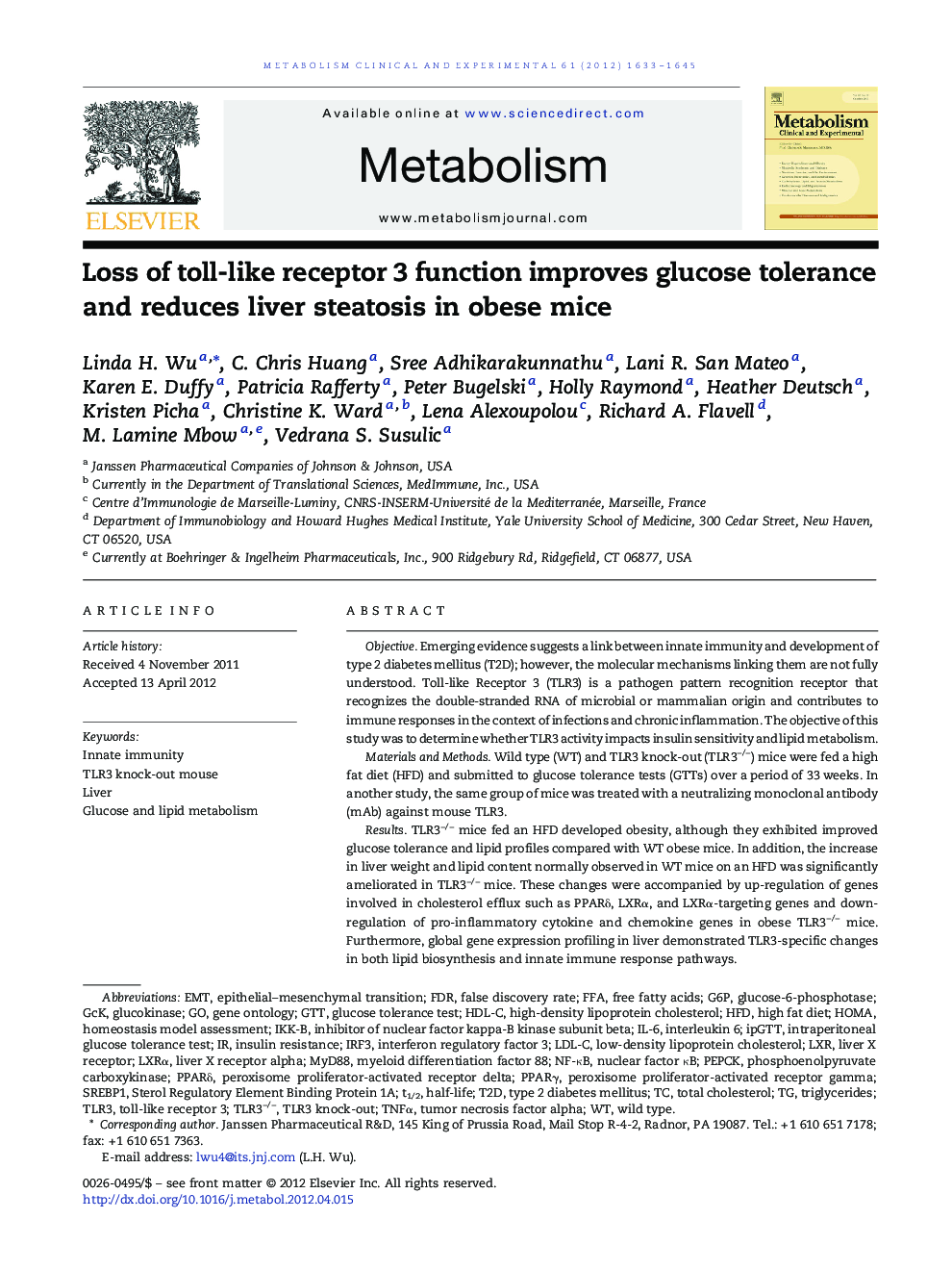| Article ID | Journal | Published Year | Pages | File Type |
|---|---|---|---|---|
| 5903758 | Metabolism | 2012 | 13 Pages |
Abstract
TLR3 affects glucose and lipid metabolism as well as inflammatory mediators, and findings in this study reveal a new role for TLR3 in metabolic homeostasis. This suggests antagonizing TLR3 may be a beneficial therapeutic approach for the treatment of metabolic diseases.
Keywords
G6PPEPCKGCKT2DTLR3HDL-CLDL-CPPARγHFDGTTIRF3LXRFFAinhibitor of nuclear factor kappa-B kinase subunit betaPPARδSREBP1NF-κBTNFαIL-6LXRαMYD88FDRIPGTTt1/2intraperitoneal glucose tolerance testHomeostasis model assessmentFree fatty acidsInnate immunityinterleukin 6Triglyceridesglucose tolerance testtumor necrosis factor alphaEMTPeroxisome proliferator-activated receptor deltaType 2 diabetes mellitusHigh fat dietmyeloid differentiation factor 88Interferon regulatory factor 3nuclear factor κBphosphoenolpyruvate carboxykinasehigh-density lipoprotein cholesterolGlucose and lipid metabolismInsulin resistancefalse discovery ratewild typeHalf-lifeGene ontologyHOMALiverliver X receptorliver X receptor alphatotal cholesterolLow-density lipoprotein cholesterolPeroxisome proliferator-activated receptor gammaEpithelial–mesenchymal transitionGlucokinaseToll-like receptor 3
Related Topics
Life Sciences
Biochemistry, Genetics and Molecular Biology
Endocrinology
Authors
Linda H. Wu, C. Chris Huang, Sree Adhikarakunnathu, Lani R. San Mateo, Karen E. Duffy, Patricia Rafferty, Peter Bugelski, Holly Raymond, Heather Deutsch, Kristen Picha, Christine K. Ward, Lena Alexoupolou, Richard A. Flavell, M. Lamine Mbow,
